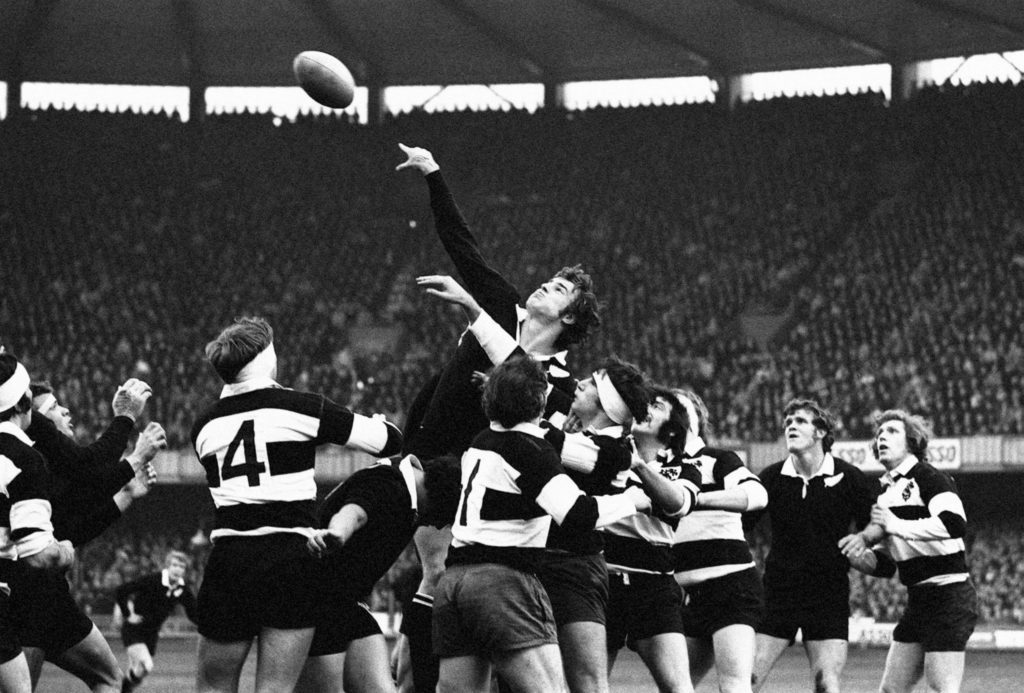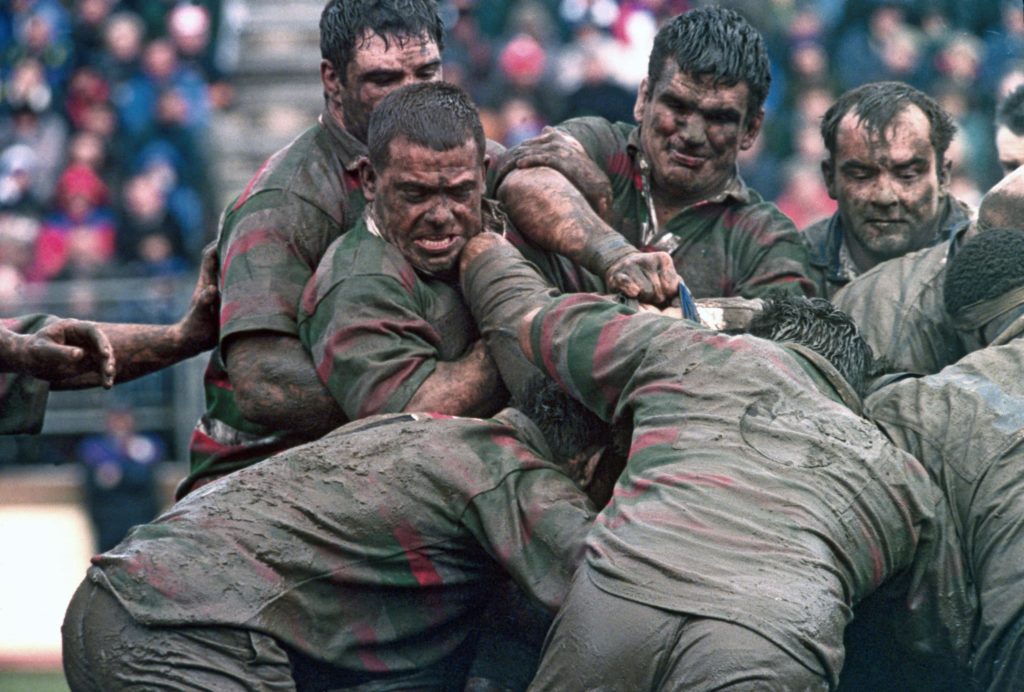We are all a little grumpy at the moment – and that’s understandable. This virus is, if nothing else, really annoying.
That said, there will always be people who like to moan the whole time, and rugby’s full of them. Since the season resumed, there has been non-stop whingeing about how shit rugby has become, particularly up here in the north, where the default attitude of entire nations is to complain.
Now, let’s be clear. Rugby has some really very serious problems. I should know. I’ve written a book about them (Unholy Union, in all good book stores, etc). Some of these problems are so serious, so unutterable and endemic, virtually written into rugby’s constitution with the blood of our youth, that it really is not too far-fetched to wonder if rugby, as currently constituted, will not have ceased to exist in 50 years’ time.
But let us get something else clear – when it comes to what happens on that rectangle of turf, regardless of all consequence or machination beyond, rugby is in a golden age. Don’t let anybody tell you the sport was better in the ‘good old days’. It’s a shameless lie, and those who tell it are simply betraying their ardent wish to be young again.
Rugby was woeful in the good old days. A bunch of amateurs slipping and sliding in the mud and rain, fumbling and kicking their way to ever more incoherent expositions of tedium.
Rugby was woeful in the good old days. A bunch of amateurs slipping and sliding in the mud and rain, fumbling and kicking their way to ever more incoherent expositions of tedium.
Oh, they’ll show you the highlights, those nostalgists. There goes Barry gliding through the hapless defences and grainy film. And here’s the hot-stepping Phil! Gareth Edwards! A dramatic start! What a score!
What they don’t show you is the rest of it. Any highlight of yore is going to be remembered fondly when set against the dross that formed the backdrop. And, just as tellingly, that dross will be conveniently forgotten. Before you can make comparisons with the rugby of today, you have to sit through the entire 80 minutes of any match from yesteryear.

If someone wanted to pick out the greatest episode in rugby history, they could do worse than the Lions’ triumphant tour of New Zealand in 1971. It just so happens that two of the four matches in the Test series are available in their entirety on the internet. In the name of research, I sat through them, the second and fourth Tests. From beginning to end. Twice. And I did it so you won’t have to.
If this was rugby at its best, God help the rest of it. The second Test was certainly better than the fourth, featuring as it did a lovely try sparked by a JPR Williams break. But, just to pluck a modern example from the top of the head, it was nothing compared to the length-of-the-field try in the first Test of 2017, sparked by JPR’s namesake, Liam.
Scrums were formed in a few seconds in the 1970s, which is just as well, given both Tests featured more than 50 of them. There were more than 50 line-outs too...
Meanwhile, some boring old stats from across the two matches – boring maybe, but not as boring as watching them play out on the field. People moan about the amount of time it takes to set a scrum these days – and it is undoubtedly a drawback in the modern game. Scrums were formed in a few seconds in the 1970s, which is just as well, given both Tests featured more than 50 of them. There were more than 50 line-outs too.
Tackling, on the other hand, was relatively rare. There were more set-pieces than tackles in both Tests. It’s worth thinking about that for a moment. The tackle nowadays has been blown into this monster, with good reason on health grounds alone, but at least it serves notice of some action taking place, an attack forcing a defence into something resembling proactivity.
 All Blacks 1973″ class=”wp-image-2302″ />
All Blacks 1973″ class=”wp-image-2302″ />Perhaps the most ridiculous cliché is this notion that rugby used to be about finding space but is now about collision. Wrong. Rugby used to be a game played by amateurs, more than half of whom were thugs strutting the field looking for a face to punch. If any space appeared in between the melees for Barry or Phil to run into, so much the better for those rare highlights, but they were the exception that proved the rule.
Which is hideously embarrassing, given the amount of space that did exist back then, when you could throw a picnic rug over the forwards, who followed each other around in packs from set piece to set piece, from punch-up to punch-up. What is undeniably true is that there is less space on a field now, but that is because the players, the teams, the coaches are so much better. They are professional, in other words.
When people complain about the modern game, it is invariably after the latest instalment of what the sporting world has come to know as the Shit Match. All sports have them. Always have, always will.
All the more kudos to modern players, then, that despite all the resources thrown at the problem of stopping them run wild and free, they still so often manage to do just that. Far more than they ever did in the old days, when 9-6 scorelines and the like were commonplace.
When people complain about the modern game, it is invariably after the latest instalment of what the sporting world has come to know as the Shit Match. All sports have them. Always have, always will.
By modern standards, those two Tests in 1971, considered the stuff of legend, are so shit it’s scarcely believable. It makes you angry to watch. Or watching it makes you angry that anyone should think it preferable to what rugby is now.
The Shit Match is not a new phenomenon, peculiar to rugby. Football’s is particularly woeful. Rugby’s has changed shape over the years, certainly – once featuring endless kicking and set pieces, now the monotonous bosh, bosh, bosh of the modern Shit Match – but it has always been there. Indeed, if we could only agree on their definition and count the Shit Matches, we would find without doubt that there are far fewer of them today than there ever were, relative to the sort of high-octane dramas that keep fans coming back for more.

None of which is to belittle the mortifying problems rugby faces, with or without a pandemic to keep it honest. Have you noticed, for example, how the concussion crisis has quietly been replaced by the coronavirus crisis? Don’t expect that to last. Concussion will be back on the agenda again – and quite soon.
Perhaps rugby’s biggest problem is the fundamental truth hardwired into it that the more players improve, the more dangerous they become to each other. That applies throughout the sport, in all countries and at all levels. This problem alone poses questions that may yet bring down rugby as currently played.
But don’t go confusing the modern accent on collision with a symptom of its inherent shitness. It is a symptom, regrettable or not, of its ever-improving excellence. And under no circumstances imagine that the answer is to return rugby to what it was in the good old days, because you would basically be asking teams and the players in them to take it easy on each other, to drop the ball after one or two phases so we can have more scrums, or kick to touch for more line-outs. To return, in other words, to being shit.
Spectacle-wise, we have never had it so good. Rugby faces many, many problems. Let’s not add misplaced nostalgia to them.
If you’ve enjoyed this article, please share it with friends or on social media. We rely solely on new subscribers to fund high-quality journalism and appreciate you sharing this so we can continue to grow, produce more quality content and support our writers.


Comments
Join free and tell us what you really think!
Sign up for free